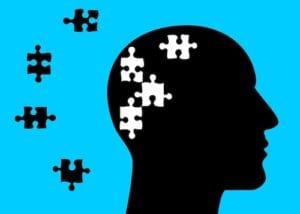A co-occurring diagnosis is a condition in which an individual is struggling with addiction, while simultaneously coping with some form of mental illness. This type of situation is common enough that addiction treatment centers have incorporated mental health treatments into their programs. While co-occurring may sound like an easy condition to identify, it’s actually a very complex psychological problem that has generated myths and rumors.
Co-Occurring Myths
The Two Conditions Are Unrelated
The interrelationship between addiction and mental illness can be difficult to understand. In debunking co-occurring myths, it’s important to understand that the two conditions can feed off one another. For instance, an individual may have started using drugs or alcohol as a means of self-medicating. The substance helped alleviate the symptoms of their mental illness, such as depression or anxiety, but, over time, their brain required more of the substance to achieve that same level of relief. This creates a cycle that strengthens the addiction and one which can further complicate mental illness.
It Doesn’t Matter Which Condition Came First
In a co-occurring diagnosis, it’s vital to understand which condition came first, because treatment methods vary based on this information. In the previous example, the mental illness came first and substance abuse was used to cope with the symptoms. However, this isn’t always the case. Sometimes, substance use instigates the situation. An individual may start casual drinking, for instance, and soon become an alcoholic. The effects alcohol has on the brain, especially with frequent exposure, can cause conditions like depression or anxiety. After a prolonged period of time, more severe mental illnesses may manifest.
Only Adults Are Affected By Co-Occurring Conditions
It’s especially important to address this misconception in debunking co-occurring myths, because it can affect how children and teens are treated. The truth is that many children and teens who develop alcoholism or drug addiction do so out of an effort to self-medicate. Children have a more difficult time understanding the nature of depression, so they seek out ways to make themselves feel better without realizing the consequences of substance abuse. By the time parents or other authority figures recognize a problem, they focus on the addiction without realizing there was likely an underlying factor that caused the addiction.
It’s Only Necessary to Treat the Addiction
People incorrectly assume that once an addict has had treatment and counseling, they will be equipped to resist relapses under any circumstance. This isn’t true at all. If the mental illness still exists and hasn’t been correctly treated, it’s far more likely that the individual will begin self-medicating again. This is why treatment facilities seek to identify pre-existing mental illnesses, which can be treated in conjunction with addiction rehab.
Treatment Often Fails
This is a myth with no basis in reality. In fact, many treatment facilities use integrated therapy to treat the conditions simultaneously. As addiction treatment teaches healthy coping mechanisms, therapy and controlled medication treats the mental illness. By the time the individual is ready to return to society, he or she has been restored to a more ideal state of mental health. While continued mental health therapy may be necessary, the individual is equipped to better handle cravings, daily stress, and other factors that might otherwise prompt an addiction relapse.
For people struggling with addiction, getting professional treatment is often essential for recovery. Trained caregivers can help by identifying underlying mental health issues and educating the addict about how the condition played a role in his or her addiction. Awareness and education are often as important to recovery as therapy and other forms of treatment.
Avalon Malibu is a world-renowned, California state-licensed mental health and substance abuse recovery center. If you are ready to seek treatment to develop the tools you need to overcome life’s obstacles and be on the road towards happiness, health, and well-being, call us today at 855-408-2040 for a consultation.











